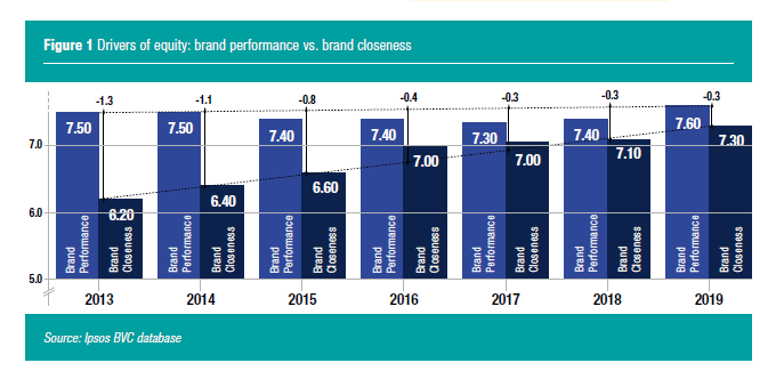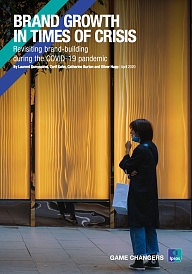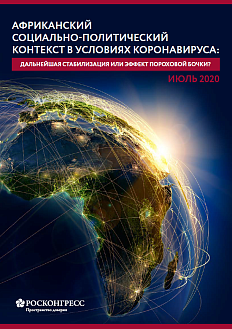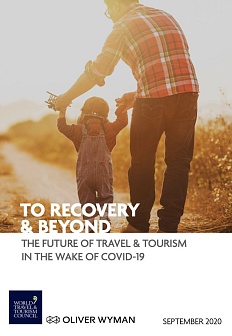The publication by the consulting company Ipsos explores opportunities for brand growth in the changing global economic environment. The researchers study changes in consumer behavior related to the growing role of empathy and emotional closeness, analyze factors that influence brand choice, and suggest modifications to corporate strategies that are necessary to ensure brands success in the current economic conditions caused by the coronavirus pandemic.
The Roscongress Foundation presents the salient points of the publication accompanied by fragments of broadcasts of relevant panel discussions from the business programme of international events held by the Roscongress Foundation.
During the current period of uncertainty, building emotional closeness with consumers will play an even more prominent role
The authors of the report point out that today, consumers are exposed to a bombardment of marketing messages and promotional activity aimed at influencing brand choice.
According to Ipsos analysts, when brand choices are made from a narrow set of preferred brands, choices are driven by either a strong emotional relationship with brands or by short-term in-market tactics (price cuts, promotions, new range/formats, renovations, etc.). Research shows that over the past 7 years the role of emotional closeness as a factor of brand growth has been steadily rising.
Ipsos analysts believe that during the current period of uncertainty, building emotional closeness and identifying with the personal goals, values and circumstances of consumers will play an even more prominent role in impacting brand choice.

Brands must review how they can generate attention saliency
Today, in a time of crisis, when society is striving for authenticity, support and reassurance, brands must review how they attract peoples attention. Given the current needs of society and the resulting patterns of consumer behavior, this must be done carefully. Brand initiatives, the authors of the publication affirm, should focus on building memory salience. This means to reinforce and create positive memories and associations with the brand in the mind of the consumers.
In doing this, messages will need to stay true to the brands unique values, identity and positioning. Marketers should be warned that people can very quickly identify when brand initiatives are more opportunistic marketing tactics than a genuine reflection of what the brand stands for. If that is the case, brand coherence may erode, relationships with consumers can deteriorate, and along with it, the brands ability to succeed post crisis.
Channel planning is also crucial to successfully create, refresh and reinforce a coherent corpus of brand mental associations. People spend more time these days across multiple media, specifically on social media platforms. Brand-building cannot however solely rely on Facebook, Twitter, or on its owned digital media channels. Traditional, trusted, media like TV or radio can play an important role during these times of uncertainty.
Even in the current conditions, a mix of sound short-term marketing activities can maximize brand selection
Building strong brands today is not only about driving demand and emotional closeness. As the current in-market circumstances are characterized by panic and uncertainty, brands need to manage these carefully. Even now, there are opportunities for growth and brands can maximize brand selection by using a mix of sound short-term marketing activities.
The Ipsos analysts find that the most prominent barriers to a planned purchase of products or services are (by order of overall importance) accessibility, product range and price. In times of economic growth, price alone plays a rather limited role in explaining barriers to actual brand choices. Meanwhile, the financial implications of social distancing and quarantines may require tighter budget constrains for consumers as it is expected to create a range of economic problems. Notably, price was a more important criteria of brand choice when the last recession started.

Global corporate strategies without due attention to local and specific needs may not be appropriate anymore
The rapid spread of the global pandemic and its reverberations cause a growing concern against globalization. Ipsos analysts believe that some challenges for global brands will increase, as consistent global messaging and a single-minded strategy may not be as appropriate everywhere anymore.
This could fast-track different models of brand management with more initiatives led by local teams focusing on local and specific needs. Global brands will need to constantly reassess their relevance against consumers local culture and track their relative acceptance alongside local players.
In fact, some global players have already designed smart strategies to embed themselves in local culture. One example that the authors give is Savannah which is manufacturing different local beers, using local crops, in various parts of Africa where it is consumed.
For more information about policy responses to the coronavirus outbreak and possible ways to stabilize the economy during the pandemic, please see the COVID-19 and StayHomeEconomy special sections of the Roscongress information and analytical system.






